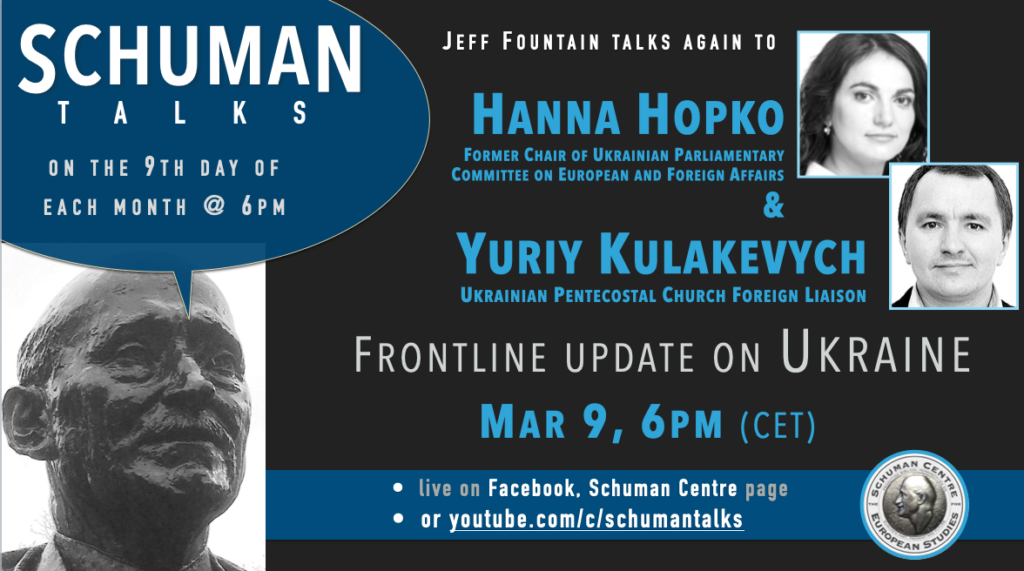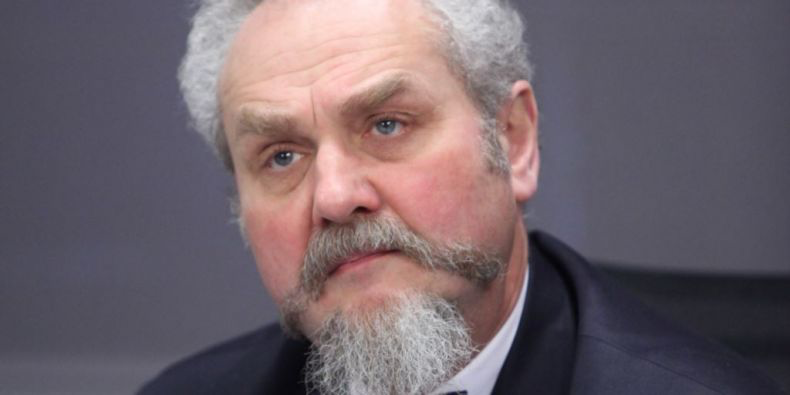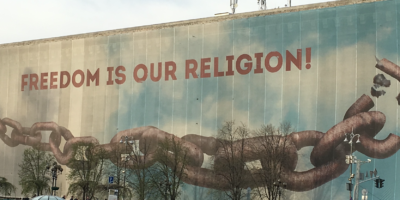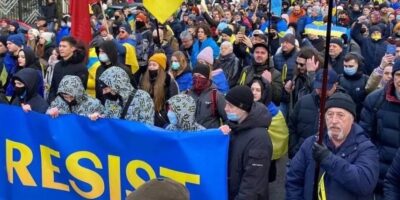Andrey Zubov is a brave and honest man.
As one of Russia’s leading historians and political scientists, he dared to speak out against the annexation of the Crimea in 2014, comparing Putin’s invasion with Hitler’s Austrian anschluss. He was temporarily sacked from his professorial chair at the Moscow State Institute of Interational Relations (MGIMO).
Last month, he signed a letter calling for Russia to back down from seeking war along with some hundred high-profile figures, Soviet-era dissidents, actors, writers, singers, journalists and liberal politicians. Over five thousand citizens later added their names via an open form. They did not expect much to come of it; but they wanted to declare their opposition.
Since then thousands have been arrested for protesting the unprovoked aggression against the neighbour. Whether the 70-year old professor was among those arrested, I do not know.
Zubov, a devout Orthodox believer who kindly accepted our invitation to address the State of Europe Forum in Riga in 2015, a year after the Crimea takeover, realised back in December how serious the Russian president was about invading Ukraine when he read the Kremlin’s list of sweeping demands to the West. Legal guarantees that Ukraine would never join NATO and the removal of all Western military forces from eastern Europe were clearly demands which would be rejected.
For over twenty years, Zubov has been warning of impending catastrophe. Unlike in western nations such as Germany, Austria and Italy, the swamp was never drained in the former Soviet Union. De-nazification was a process lasting decades in these lands after the war. De-communisation also began after 1989 in the Baltic states, Czech Republic, Poland and other east bloc nations that joined the EU. And property was returned.
Clear and present danger
In Russia, laments Zubov, de-communisation and restitution of property rights never happened. Instead the same Soviet people were sitting in government offices, Zubov told us in Riga. The Russian elections of 2007, 2008, 2011 and 2012 were rigged, resulting in an illegitimate regime The Soviet mentality still reigned. People did not think critically. They remained homo sovieticus.
Yet under Putin, Zubov points out, Russia has not returned to the USSR, when all the property was owned by the state. For now only a handful of Putin’s oligarchy friends owned the property. While those who cooperated with the government got their share of the property, the people of Russia did not. They were given certain freedoms after communism collapsed, but not economic opportunity.
For years Zubov has understood that what happens in Ukraine matters for the rest of both Europe and Eurasia. The Maidan revolution of 2014 was seen as an illegal coup by the Kremlin occupants who feared politicians elected by the people. Politicians aiming to build a real democratic state in Ukraine represented a clear and present danger to the Moscow regime. If they succeeded, Zubov predicted, Putin’s plans to rebuild the Russian empire would be greatly threatened.
Recent democratic uprisings in Belarus and Kazahkstan were suppressed ruthlessly with the help of Russian forces arresting thousands, showing how dangerous and unsettling the ongoing democratisation of Ukraine in the region was proving to be.
Contrary to Putin’s claims that Ukraine was not a proper nation or a truly separate people, Zubov explained how Ukraine has been different from Russia for centuries, being more European and more cultured. In the seventeenth century, educated Ukrainian priests crossed the border to set up schools, teach the Tsar’s children and give Russia a cultural vaccine.
A responsible society
Since the Maidan Revolution of Freedom and Dignity, which followed on from the 2005 Orange Revolution, Ukrainians began to think for themselves and accept responsibility for their own future, not simply accepting tired Soviet-style clichés. Homo maidanus was learning to stand up and walk on his own two feet. Together with their fellow countrymen, Ukrainians began to work towards a responsible society.
In Riga, Zubov made it clear that ‘Russia’ and ‘Putin’ were very different things: “Putin says ‘Russia wants this’ or ‘Russia demands that’. No, it’s Putin and the Kremlin making demands — not Russia or Russians.”
While Putin claims his mission is to ‘de-nazify’ Ukraine, his annexation of both Crimea and Donbas mirror the Nazi takeovers of Sudetenland and Austria. Hitler wanted all German-speaking nations in Europe to be a part of a greater Germany. Putin is openly pursuing his goal of Russkiy Mir, uniting all Russian speakers regardless of national borders. In his understanding this gives him the moral right and obligation to ‘protect’ Russian speakers wherever they may live.
On this coming Wednesday’s Schuman Talk, March 9 at 6pm CET, I talk again with Ukrainians Hanna Hopko and Yuriy Kulakevych with whom I discussed the Ukrainian crisis on last month’s Schuman Talk (a really stirring interview!) They will give us the latest frontline perspectives, and help us understand why what happens in Ukraine matters to the whole world.

Till next week,



